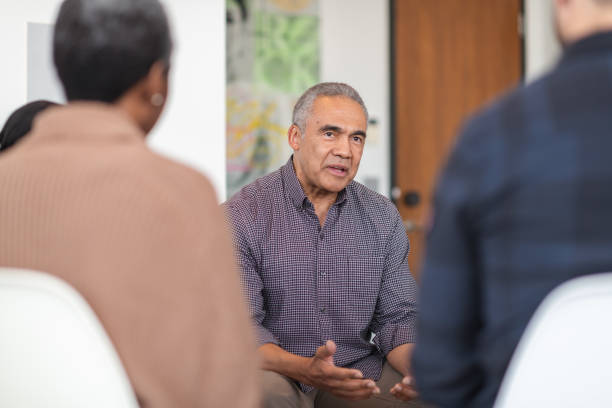
There is nothing more satisfying than being in a community of love and support. A group of friends can make tough times more manageable, makes it easier to tackle the challenges and make living a more pleasurable experience. Our mental and physical health majorly benefit from spending time with friends. The quality of our lives can be improved by the love that we receive from offer to our family and friends.
We are comfortable in most of our social groups because we have many things in common. It doesn't matter if it's relatives who share the same bloodline or friends with similar interests, we connect with others best when we have a connection. What happens, then, when we require help for addiction issues?
There's a good chance that you have family members or friends who are committed and supportive to your recovery. They may have offered sacrifices to you. They may have even struggled with addiction themselves. However, even the most well-meaning assistance from your loved ones may feel ostracizing or belittling when it is from those who do not have the same struggles as you do.
That's the reason why nonprofit for addiction recovery is a factor. Like any other challenge having a group of those who are going through similar challenges can offer assistance and connection. Peer support for addiction recovery is when, in the course of treatment, individuals are grouped together in groups that share similar struggles in order to share experiences, listen and discuss. These groups are not professional and not clinical.
What exactly is peer support?
There are many ways to offer support to your peers. Many of the most effective treatment programs for alcohol and drug addiction have relied on peer support for decades and have benefited from the massive influence of social groups. Alcoholics Anonymous is perhaps the most popular example of the peer addiction recovery. Narcotics Anonymous, which operates similarly, also uses social support as a key element of treatment.
Although these are established associations that meet in groups in an effort to provide the support of peers in addiction recovery There are different methods of treatment that utilize peer groups. Group meetings are a popular method of offering support to addicts. Both men and women can get support from peers in sober living homes. Mentorship and sponsorship programs allow peers to help those who are new to the world of sobriety.
You might be asking what if these organizations and methods of treatment are nonprofessional and nonclinical, do we know that they work? Yes. Peer support programs for drug addiction are proving to be efficient, based on increasing evidence. A meta-analysis of nine studies published in Substance Abuse and Rehabilitation showed that peer support programs are an effective part of treatment for addiction.
What are the advantages to peer support from addiction?
1. Reduce drug and alcohol consumption
Peer support in addiction treatment has been found to lower alcohol and drug use, according to the research mentioned above. In the research, mentors and mentees were observed to have significant decreases in substance use or were able keep their sobriety intact throughout the program.
2. Stick with the treatment
Peer support can lead to a reduction in substance abuse and increase the likelihood of a person completing a treatment program. Peer support is more common than treatment that does not have peer support. The majority of people successfully complete programs that have a social component.
3. Learn from the guidance of a mentor
Peer support can include meeting with a mentor. This might be someone you speak in one-on-one with or in a larger group that has been sober for a long period of time and still participates in support groups. Learn from someone who's been through the same situation but is a little further along in his or her journey could provide a real sense of hope. Mentors can assist us in seeing that someone who is similar to us could be a good mentor. addiction support groups.
4. Meet new people
Addiction can be extremely isolating. Peer groups are the ideal way to establish lifelong friendships and help you with your recovery. A lot of people who have experienced addiction firsthand are difficult and supportive. Friendships that last will be strong since you'll wish the best for one others. With these strong foundations you'll surely create new best friends.
5. A feeling of accountability
The advantages of having a the community are a feeling that you're responsible and a feeling of belonging. This is something you won't find in other types of treatment. The peer support system is unique to addiction recovery due to a social pressure to abstain. This is a positive one that comes from the desire to help those you care about make more fulfilling lives for themselves. It will truly feel like it's a team effort when you seek sobriety together.
6. Feeling connected
Many people struggle with addiction and are seeking their place in this world. Peer support groups is an excellent opportunity to gain the meaning in your life if you've ever wondered what your role is and what you can contribute to the world. You'll be inspired as members share their experiences and often have the opportunity to share your own.
Your journey will be influenced and influenced by others and you'll have the chance to inspire others in the process of overcoming your addiction. Even if you've had been through a rough time it will provide you with an inner feeling of fulfillment and purpose.